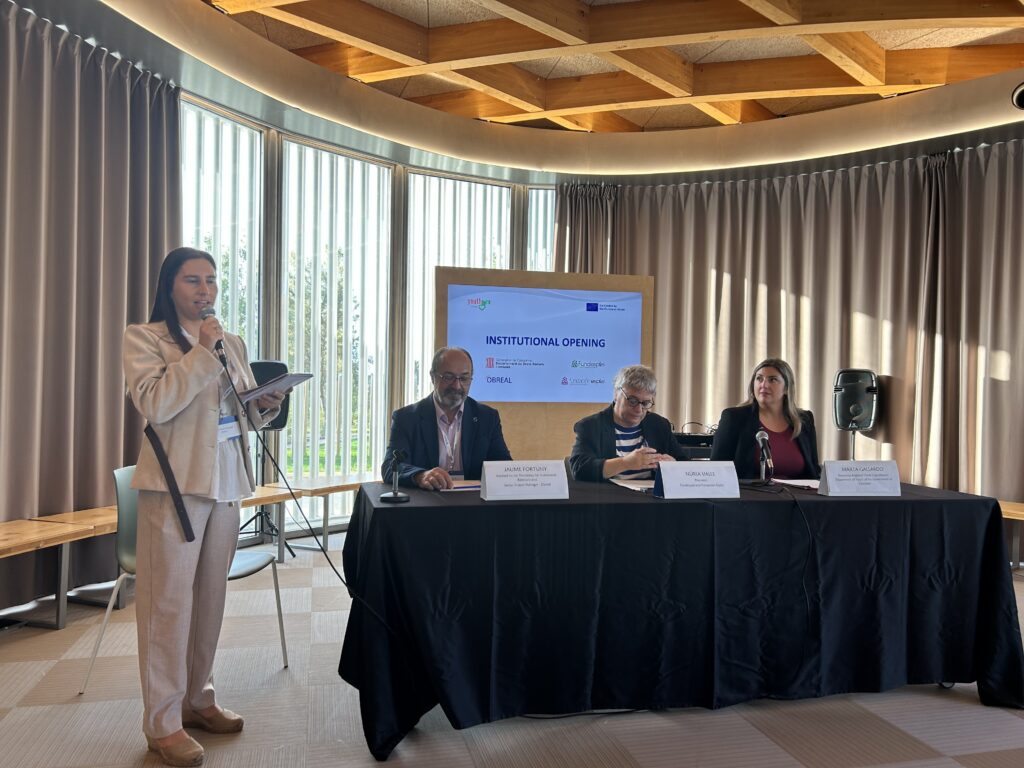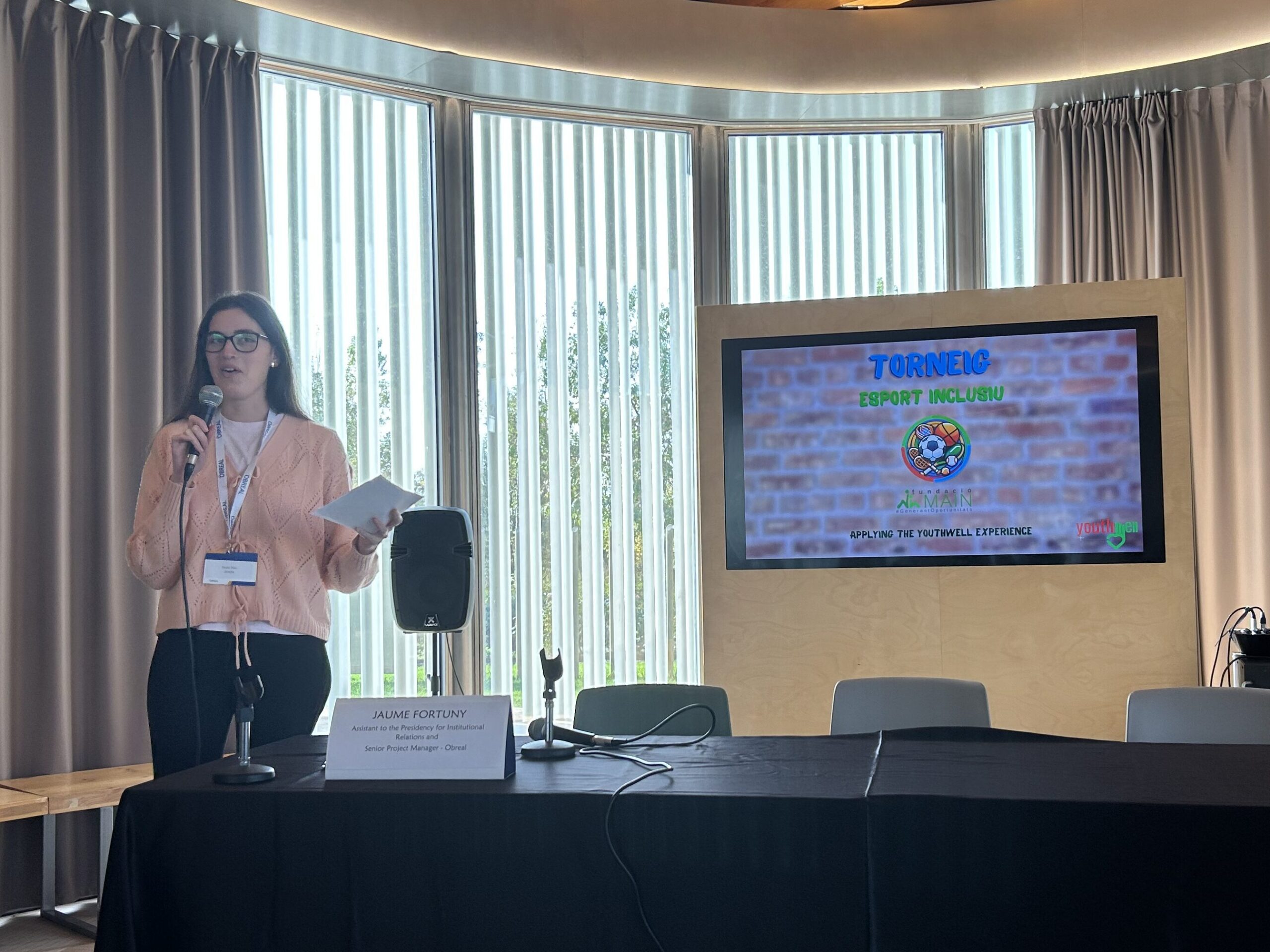Tangible results and new challenges for the YouthWell project
From 14 to 16 October, Obreal hosted a new meeting of the YouthWell project, an initiative co-funded by the European Union that aims to create a network of resilient, informed and active young people capable of leading the way towards a better future. Through collaboration and the promotion of mental health and active citizenship, YouthWell seeks to empower young people to become agents of change in their communities.
Over three days of dialogue, co-creation and inspiration, Obreal brought together at Fundesplai representatives of organisations and youth professionals from across Europe to share experiences and define strategies to ensure the continuity of the project’s results.
Presence of institutions, organisations and civil society

The meeting opened with an institutional event featuring Marta Gallardo, Territorial Youth Coordinator in Barcelona at the Department of Youth of the Government of Catalonia, and Núria Valls , President of Fundesplai, the host organisation of the event. Both highlighted the importance of promoting public policies that place young people at the centre and of strengthening ties between institutions, organisations and civil society to address the current challenges of youth work.
The opening session also featured Jaume Fortuny, Senior Project Manager at Obreal, who highlighted the global dimension of the project and its connection to the organisation’s mission, stating that ““at Obreal we work every day to connect Europe with other regions of the world, and we believe that YouthWell can also serve as an inspiration for international cooperation. The challenges faced by young people — such as precariousness, mental health, or civic disengagement — are global and require global responses.”
Tangible results and real impact
The YouthWell project has proven to be a particularly fruitful initiative, delivering concrete and practical results for youth work professionals. YouthWell has succeeded in producing tangible and sustainable outcomes that are already being used by organisations and young people across Europe.
Among these key results are:
- The YouthWell e-learning platform, featuring training modules for youth professionals that provide practical tools and interactive content.
- A series of thematic podcasts on inclusion, resilience and civic participation, showcasing the experiences and reflections of young people and trainers, including one produced by Obreal.
- The Open Educational Resources Library, which gathers all the knowledge generated during the project into a single open and accessible space.
- The YouthNet network, a vibrant community of professionals and organisations that promotes cooperation, innovation, and sustainability in youth work.
All these materials remain available on the project’s website: www.youthwell.eu.
Success stories
One of the most remarkable moments of the meeting was the presentation of real cases applying the YouthWell tools, led by professionals who had taken part in its training activities and mobilities.

Among them, Nora Mas, from the Main Foundation in Sabadell, shared how the good practices learned during the project inspired them to organise an inclusive sports tournament between students from a high-complexity secondary school and people with intellectual disabilities from a nearby centre. The activity completely transformed the relationship between the two groups, shifting from initial mistrust to a natural and positive collaboration. “Now the bad relationship is history. The tournament was a great success, and we are already preparing its second edition. ”, explained Mas.
This testimony is just one of the many examples that show how YouthWell has managed to turn theory into practice, generating real change in local communities and transforming the way young people engage in civic life.
YouthWell, a community that goes beyond the project
The event also served as a space for looking towards the future. During the working sessions, participants developed cooperation proposals aimed at ensuring the continuity of the project’s initiatives, while exploring new alliances and lines of collaboration between organisations from different countries.
The discussions highlighted the need to keep the YouthNet network alive, consolidating it as a permanent space for exchange, learning and innovation for professionals and organisations dedicated to youth work.
In short, the Barcelona meeting concluded three days of intensive work with a highly positive outcome: concrete projects, future proposals, and a more cohesive community that will continue working towards youth work that is more sustainable, inclusive, and transformative.
